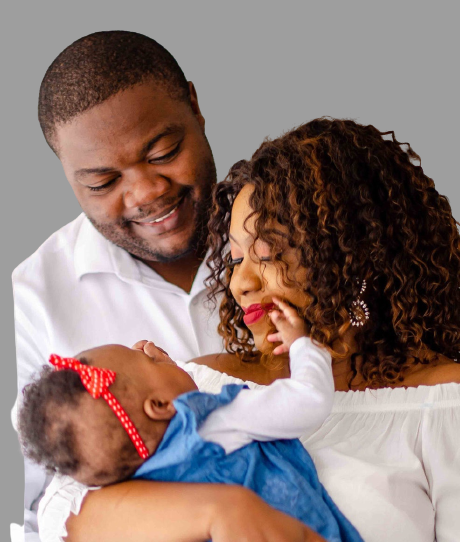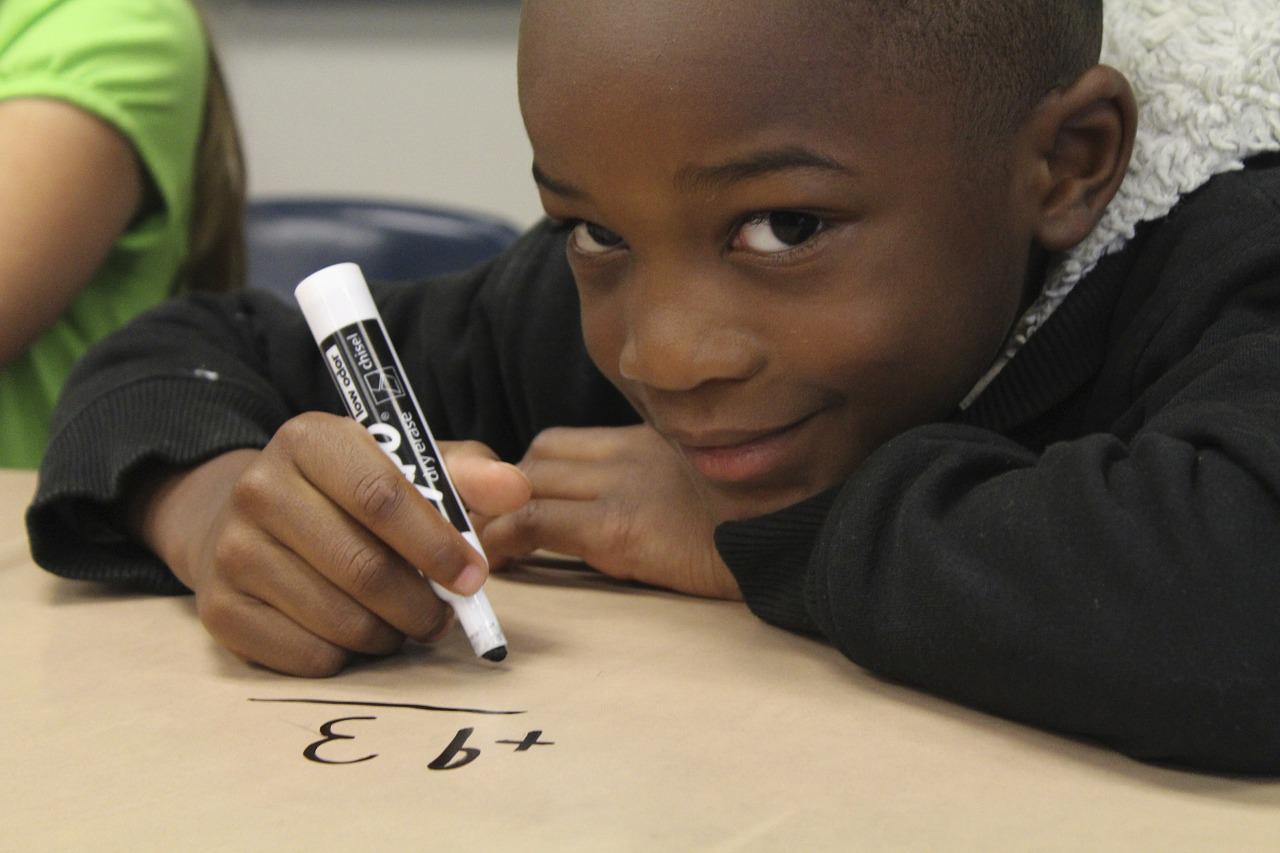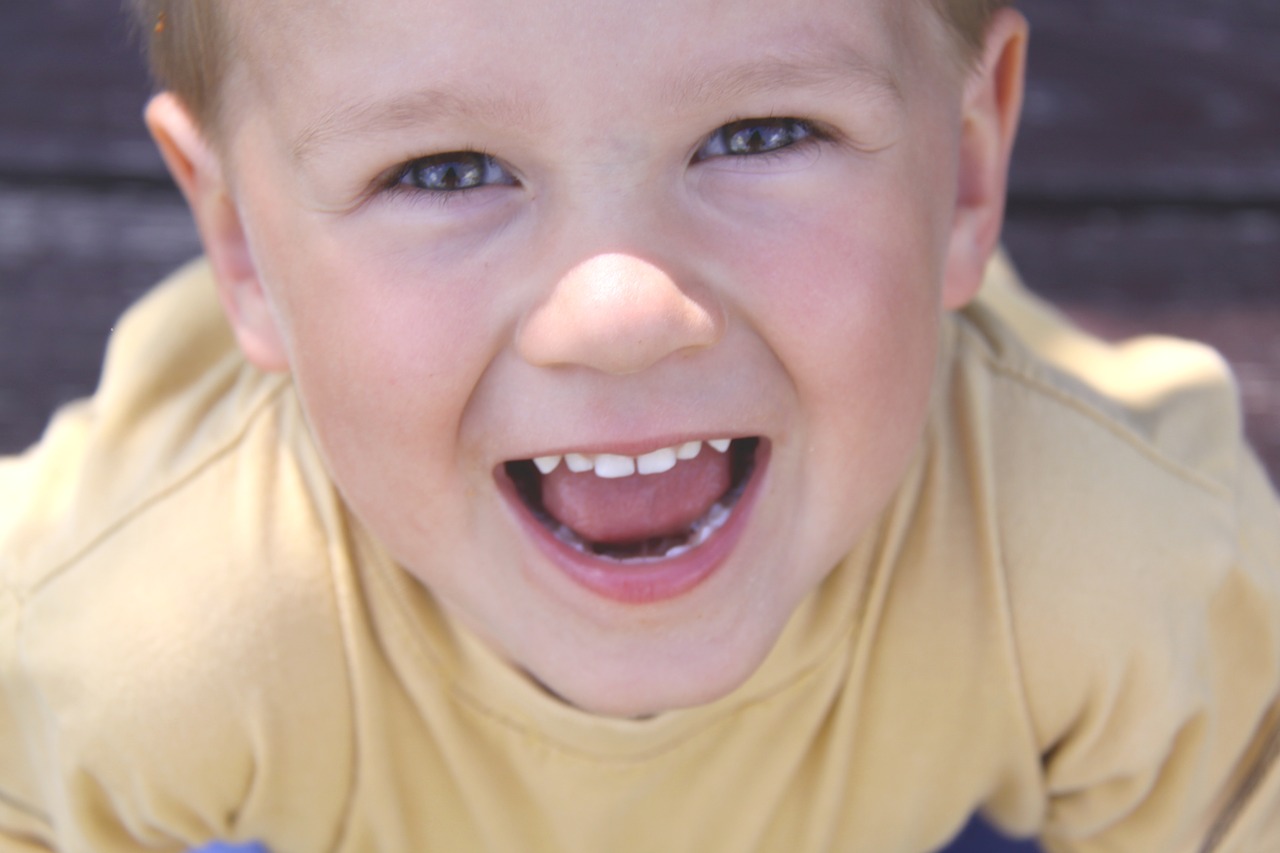Speech and Language Milestones [downloadable]
 Children vary in their development of speech and language skills. However, they follow a natural progression or timetable for mastering the skills of language. A checklist of milestones for the normal development of speech and language skills in children from birth to 6 years of age is included below.
Children vary in their development of speech and language skills. However, they follow a natural progression or timetable for mastering the skills of language. A checklist of milestones for the normal development of speech and language skills in children from birth to 6 years of age is included below.
Listening Skills
| AGE |
MILESTONE |
| BIRTH-3 MONTHS |
- Discriminates speech from non-speech sounds. Startles to loud sounds.
- Startles to loud sounds.
- Quiets or excites in response to novel sounds.
- May calm and turn towards nearby source of continuous sound (except when screaming or feeding).
- Recognizes a primary caregiver’s voice and smiles or quiets when spoken to.
- Decreases or increases sucking behavior in response to sounds.
|
| 3-6 MONTHS |
- Moves eyes (and may turn head) in direction of sounds.
- Discriminates friendly and angry voices and reacts to these changes in tone of voice.
- Attends to music and toys that make sounds (including those out of sight).
- Listens to a speaker and watches a speaker’s face when spoken to.
- Shows excitement at sound of familiar voices approaching, footsteps, running water, etc.
- By 6 months will turn immediately to a familiar voice across the room.
- By 6 months will turn to source of sound, when hears sounds at ear level.
|
| 6-12 MONTHS |
- Responds to sound when a source is not visible; will turn to look for this.
- Responds physically to music and tries to join in with familiar tunes.
- Recognizes words for common items.
- Listens with increased interest to new words and attentive to everyday sounds.
- By 12 months begins to respond to simple requests, such as “sit here.”
- By 12 months will immediately respond to own name.
|
| 1-2 YEARS |
- Follows one-step directions with cues.
- Follows directions to find two familiar objects.
- Points to named pictures in a book.
- Listens to simple stories.
- Listens to songs and rhymes, and tries to join in.
|
| 2-3 YEARS |
- Responds to commands involving body parts, such as “show me your foot.”
- Follows two-step directions, such as “get your cup and bring it to me.”
- Follows directions that include action + adverb or action + adjective, such as “walk slowly” or “give me the red ball.”
- Demonstrates understanding of several verbs by selecting corresponding pictures.
- Recognizes family labels such as “baby,” or “grandpa.”
- Listens with interest to general conversation.
|
| 3-4 YEARS |
- Attends to name being called from another room.
- Understands simple wh- questions.
- Understands most simple questions related to own activities and environment.
- Improves listening skills and begins to learn from listening.
|
| 4-5 YEARS |
- Attends to a short story and answers simple questions about it.
- Hears and understands most of what is said at home and in school.
- Repeats four digits when they are given slowly.
- Readily follows simple commands involving remote objects.
|
| 5-6 YEARS |
- Repeats sentences up to nine words in length.
- Follows three-step directions.
- Responds correctly to more types of sentences but may still be confused at times by more complex sentences.
|
Pragmatics/Social Interaction
| AGE |
MILESTONE |
|
|
- Responds to voice and sound.
- Watches speaker’s face and stops crying when spoken to.
- Discriminates between strangers and familiar people.
- Varies responses to different family members.
- Smiles when spoken to, has a social smile.
- Uses babbling for gaining attention and expressing demand.
- Establishes eye contact.
|
|
|
- Responds to “no.”
- Responds to name and pats image of self in mirror, smiles at self in mirror.
- Tries to “talk” to listener.
- Coos, squeals and shouts for attention.
- Laughs when playing with objects and people.
- Tries to communicate by actions and gestures (inc. pointing).
- Plays simple social games, such as peek-a-boo.
- Copies simple actions of others.
|
|
|
- Repeats actions that made someone laugh.
- Engages in parallel play and talks to self during play.
- Pairs gestures with words to make wants known (e.g., “more” and “up”).
- Imitates adult behaviors in play.
- Refers to self by name.
- Engages in verbal turn-taking.
- Protests by vocalizing “no.”
- Engages in simple pretend play, such as talking on a telephone.
- Uses social words such as “hi” and “bye,” “thank you” and “please,” waves “bye bye.”
- Practices intonation, sometimes imitating an adult.
|
|
|
- Requests permission for items or activities.
- Engages in increasingly longer dialogues and makes repairs if not understood.
- Participates in simple group activities.
- Defends own possessions.
- Carries on “conversation” with self and dolls.
- Engages in simple, make-believe activities.
- Begins to control behavior verbally rather than just physically. Helps put things away.
|
|
|
- Takes turns and plays cooperatively.
- Relates personal experiences through verbalization.
- Separates from primary caregiver easily.
- Begins dramatic play, acting out whole scenes.
- Shows frustration if not understood.
- Expresses ideas and feelings, talks to self to practice conversation skills.
|
|
|
- Uses words to invite others to play.
- Uses language to resolve disputes with peers.
- Has good control of the elements of conversation.
- Speaks of imaginary conditions, such as “I hope” or “I wish.”
|
Language Skills
|
|
|
|
|
|
- Understands instructions in context and with cues (e.g., pointing).
- May point to pictures in a book when named.
|
- Has between 2-10 recognizable words.
|
|
|
- Understands instructions without context clues.
- Understands simple questions, e.g., “Where’s Daddy?”
- Answers “What’s this?” in relation to familiar objects.
- Answers yes/no questions.
- Makes a choice with intentionality.
|
- Has around 20-60 recognizable words.
- Not always understood by unfamiliar adults.
- Beginning to use simple “What’s that?” question forms.
|
|
|
- Begins to understand instructions with two important words (e.g., “Pass me the big spoon.”)
- Understands many words (200-600 words).
- Answers more wh- questions such as “Where….?,” “What is…doing?,” “Who is…?”
- Understands “Can you…?” questions.
|
- Uses at least 60 words. May have 200-300 words.
- Uses phrases with two or more words (e.g., “Where teddy bear?” or “More juice.”
- Copies lots of words.
- Between 2 and 3 years, is asking more wh- questions such as “Where…?,” “What…?,” “What…doing?” questions.
|
|
|
- Understands instructions with three important words (e.g., “Put the spoon under the plate.”)
- Understands a range of verbs.
- Understands simple wh- questions (who, what, where).
- By 4 years, is beginning to understand “why” and “how” questions.
- By 4 years is able to answer questions related to function, quantity, and “If…what” style questions (e.g., “If it starts raining, what do you need?”
|
- Has around 1000 words.
- Uses phrases with three or more words.
- Uses “what,” “when,” “where,” “how,” and “whose” when asking questions.
- By four years, asks questions such as “Can y0u…?,” “Do you want to…?,” and “Are we going to…?”
- By four years, asks one- word “why?” questions.
|
What Counts As a Word?
A word that is used consistently, independently and intentionally.
This includes:
- Word approximations (e.g., “uh” for “up” or “moh” for “more”)
- Symbolic sounds and exclamatory words (e.g, animal sounds, and words like “uh oh” and “yay.”
- Signs and gestures.
Speech Sounds
| AGE |
SOUND |
|
|
P, B, M, N, T, D, K, G, NG, (as in sing), W, H, Y, F |
|
|
L, J, CH, S, V, SH, Z |
|
|
R, ZH (as in measure) Voided “th” (as in this) |
|
|
Voiceless “TH” (as in “think) |
Download a copy of this handout.
Source: Information taken and adapted from Lingisystems Guide to Communication Milestones (2012), and Sheridan (2008)
CHC is here for you. Sign up for the CHC Virtual Village to receive weekly email updates about upcoming news, events and resources related to your interests.
If you have concerns about your child’s speech or language development, CHC Care Coordinators can arrange a free 30-minute consultation so you can explore options with an expert. We invite you to call or email us at 650.688.3625 or careteam@chconline.org to set up an initial Parent Consultation appointment.
You might also be interested in:
-
During a child's first few years of life, they are rapidly developing communication skills. Whether…
-
Dyscalculia (dis-kal-KYOO-lee-uh) is not as well known as dyslexia, but both are learning disabilities. Dyscalculia…
-
Because of the pandemic, many kids that should have started preschool in the fall are…
 Children vary in their development of speech and language skills. However, they follow a natural progression or timetable for mastering the skills of language. A checklist of milestones for the normal development of speech and language skills in children from birth to 6 years of age is included below.
Children vary in their development of speech and language skills. However, they follow a natural progression or timetable for mastering the skills of language. A checklist of milestones for the normal development of speech and language skills in children from birth to 6 years of age is included below.




